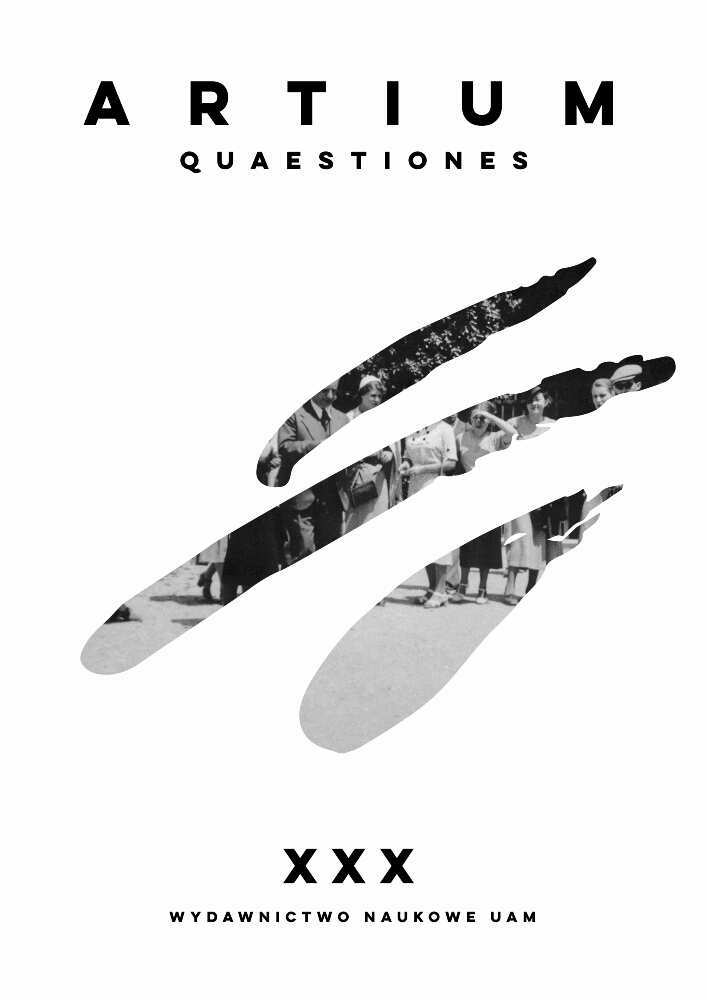Abstrakt
The present paper is reminiscence and an attempt to reconstruct the intellectual heritage of art history as it was practiced at the University of Poznań in the late 1960s and throughout the 1970s in the context of new developments in cultural theory and changing research interests. Besides, it includes the author’s account of his own academic work in that period, began in the 1960s and inspired in particular by the year 1968 that brought a social crisis and a cultural revolution, as well as introduced the element of imagination into academic knowledge and critical thought. The author draws a wide panorama of intellectual stimuli which contributed to an epistemic and methodological turn, first in his own scholarly work and then in the work of some other art historians in Poznań. Those turns opened art history at the University of Poznań to critical reading of artistic practices approached in relation to other social practices and subjects of power. As a result, four key problems were addressed: (1) the position of contemporary art in research and teaching, (2) the necessity to combine detailed historical studies with critical theoretical reflection, (3) the questioning of genre boundaries and ontological statuses of the objects of study and the semantic frames of the work of art, and finally, in connection to the rise of an interdisciplinary perspective, (4) the subversion of the boundaries and identity of art history as an academic discipline. Then the author reconstructs the theoretical background of the “new art history” that emerged some time later, drawing from the writings of Walter Benjamin, the French structuralism, Theodor Adorno’s aesthetic theory, and Louis Althusser’s interpretation of the concept of ideology. Another important problematic was the avant-garde art of Poland and other East-Central European countries, studied in terms of artistic geography and the relations between the center and periphery. The conclusion of the paper presents a framework marked with the names of Aby Warburg and Max Dvořák, which connected the tradition of art history with new developments, took under consideration the seminal element of crisis, and allowed art historians to address a complex network of relations among the artist’s studio, the curator’s practice, the scholar’s study, and the university seminar, as well as the West, the Center, and the East. At last, the author remembers the revolutionary, rebellious spirit and the lesson of imagination that the Poznań art history took from March and May, 1968.
Bibliografia
Feyerabend P. K., Against Method, London and New York 1993, pp. 18–19
Foucault M., “Preface to Transgression,” trans. D. F. Bouchard and S. Simon, in: idem, Aesthetics and Methodology, Essential Works of Foucault, vol. 2, ed. J. F. Faubion, New York 1998, pp. 74–75
Kryzysy w sztuce. Materiały z sesji Stowarzyszenia Historyków Sztuki, Lublin, grudzień 1985, ed. E. Karwowska, Warszawa 1988
Turowski A., “Konstruktywizm wschodnio- i środkowoeuropejski w powiązaniu z awangardą dwóch pierwszych dekad XX wieku” (a report on Les relations du constructivisme d’Europe de l’Est et d’Europe Centrale avec l’avant-garde des deux premiers décénnies du XX siècle conference, Gołuchów 1980), Artium Quaestiones 1983, 2, pp. 188–190
Proceedings of Les relations du constructivisme d’Europe de l’Est et d’Europe Centrale avec l’avant-garde des deux premiers décénnies du XX siècle conference, Gołuchów 1980, Ligeia 1989, 5–6, pp. 31–131
Turowski A., Existe-t-il un art de l’Europe de l’Est?, Paris 1986
Wallerstein I., Utopistics: Or Historical Choices for the Twenty-First Century, New York 1998, p. 90
Zola É., “J’accuse!,” L’Aurore 1898, January 13
Licencja
Prawo autorskie regulowane jest oświadczeniem autora przygotowanym przez Wydawnictwo Naukowe UAM a od nr XXVIII także umową licencyjną na publikację online zawartą pomiędzy Autorem i Uniwersytetem im. Adama Mickiewicza. Autorzy ponoszą odpowiedzialność za oryginalność zamieszczanego materiału tekstowego oraz regulację praw autorskich dotyczących materiałów ilustracyjnych. W przypadku, gdy materiały pochodzą od redakcji – odpowiedzialność ponosi redakcja czasopisma.
Ten utwór dostepny jest na licencji Creative Commons Uznanie autorstwa - Użycie niekomercyjne - Bez utworów zależnych 4.0 Międzynarodowe.
